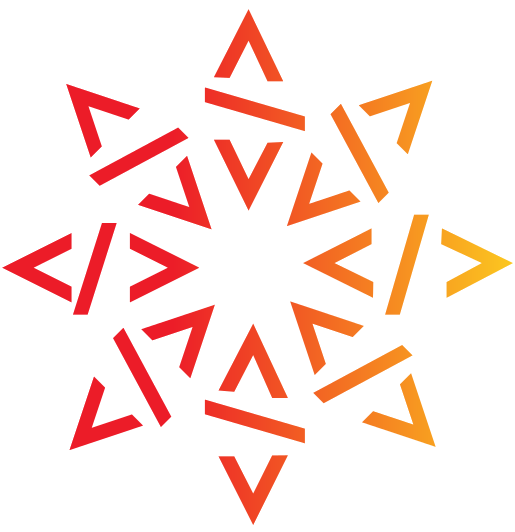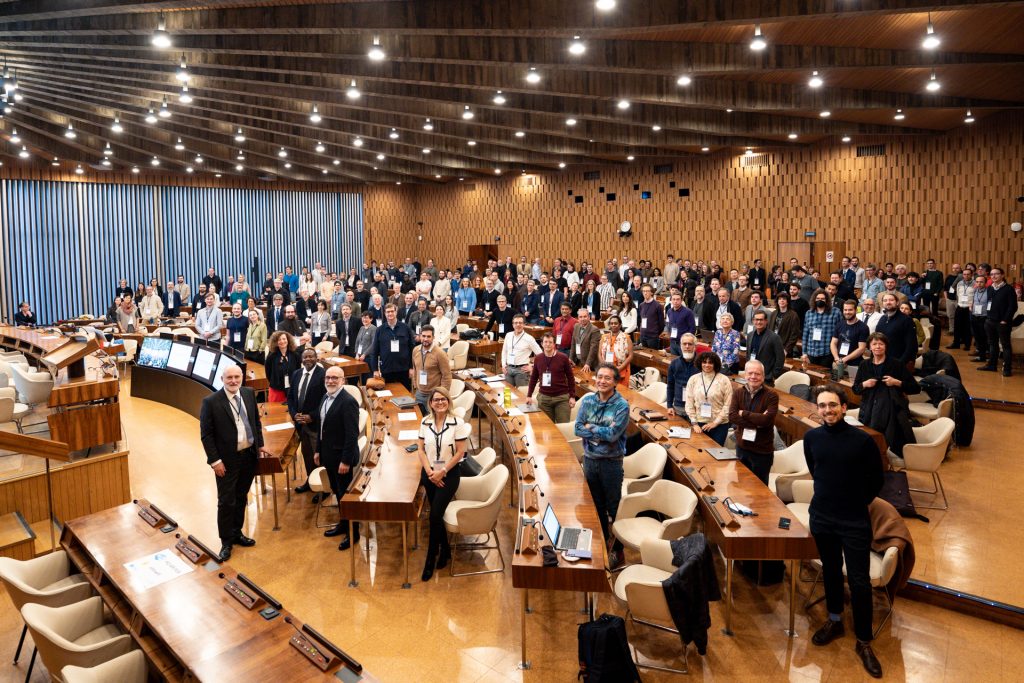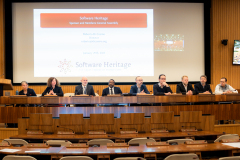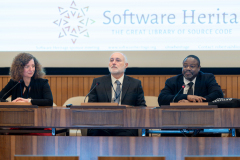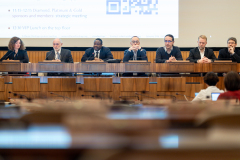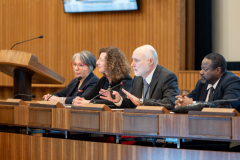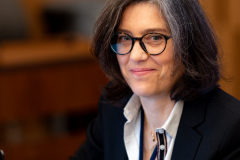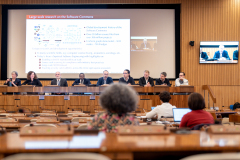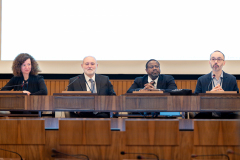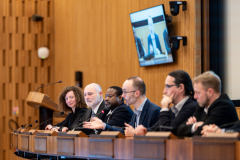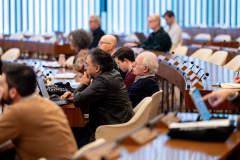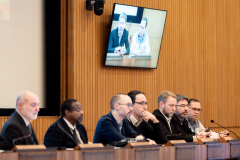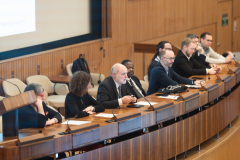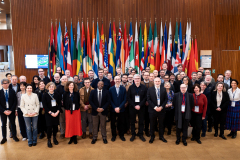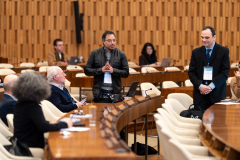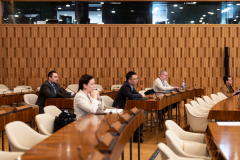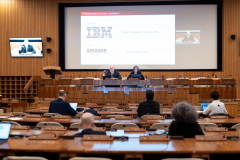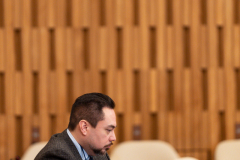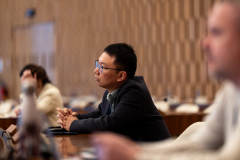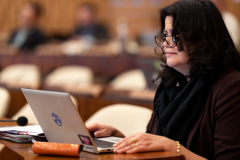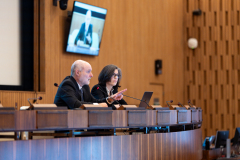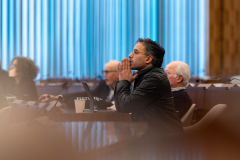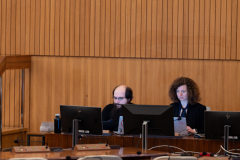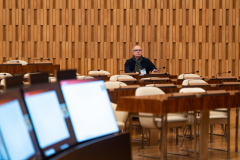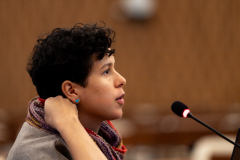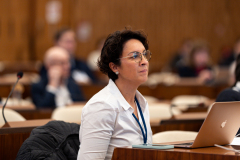Software Heritage 2025 Symposium and Summit
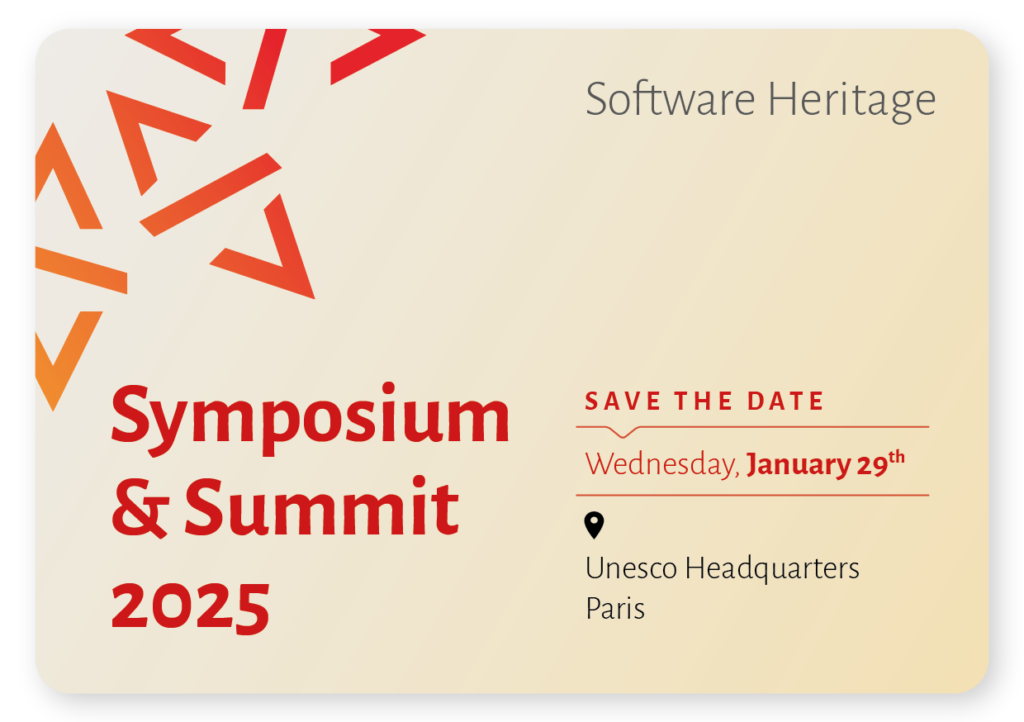
 The annual Software Heritage Summit and Symposium, which took place on January 29, 2025, at UNESCO Headquarters in Paris, provides a unique platform for academia, industry, and policymakers to discuss critical issues at the intersection of software, artificial intelligence, and society.
The annual Software Heritage Summit and Symposium, which took place on January 29, 2025, at UNESCO Headquarters in Paris, provides a unique platform for academia, industry, and policymakers to discuss critical issues at the intersection of software, artificial intelligence, and society.
The Summit private meeting brought together members, sponsors and partners of Software Heritage to hear about the progress made in 2024 and work on the 2025 roadmap.
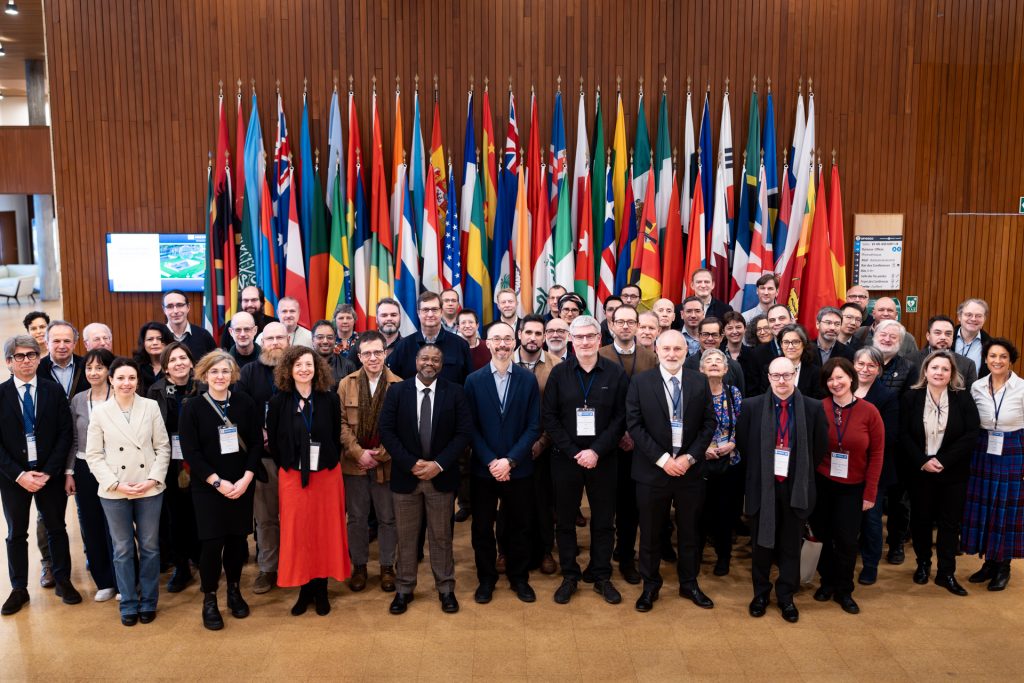
Participants of the 2025 Software Heritage Summit, private event before the 2025 Software Heritage Symposium. © Inria / Photo B. Fourrier
After the Summit, the 2025 edition of the Symposium focused on four key themes:
Cybersecurity and regulation
In the era of heightened regulation, including the European Union’s Cyber Resilience Act (CRA), ensuring a robust and open infrastructure for software preservation and traceability is vital. Stricter global cybersecurity and compliance requirements pose challenges to the software ecosystem but also open pathways for innovation. Software Heritage, in partnership with UNESCO, provides the transparency, reliability, and long-term accessibility required to navigate these regulatory landscapes. This track will explore the intersection of policy, regulation, and technology, highlighting how open infrastructures safeguard public and private digital ecosystems.
Open and transparent AI
AI’s transformative potential must be harnessed responsibly to serve the entire global community, particularly regions in the Global South. Transparency in AI development and deployment is crucial for building trust, ensuring ethical practices, and reducing inequality. Software Heritage, through its preservation of source code and partnership with initiatives like StarCoder2, provides a foundational infrastructure for creating and sharing open AI models. These efforts enable equitable access to AI technologies, supporting innovation in underserved regions and fostering inclusive global progress. Discussions in this track will explore strategies to ensure that transparent, open, and efficient AI models are accessible to everyone, regardless of geographic location or economic status.
Open Science
The UNESCO Recommendation on Open Science underscores the importance of non-commercial digital infrastructures for preserving and disseminating scientific knowledge. Software Heritage embodies this vision by ensuring community-driven, long-term stewardship of software source code as first-class research outputs. This session will delve into how Open Science practices, supported by Software Heritage, foster collaboration, accelerate discovery and promote scientific endeavors globally.
Cultural preservation and education
Software source code is a unique form of cultural and documentary heritage, with immense educational value. Recognizing software creators, including contributions from women and minorities, is critical to capturing the full narrative of digital innovation. Building on the 2019 Paris Call and UNESCO’s Memory of the World Programme, this track emphasizes the importance of software preservation for empowering citizens and cultivating digital literacy, ensuring inclusive participation in today’s digital society.
Program of the 2025 Symposium & Summit
9:00 – 12:30 Software Heritage Summit (members – invite only.)
14:30 – 19:00 Software Heritage Symposium
The conference program is subject to change, and additional speakers will be announced soon.
14:30 Welcome address and opening remarks
Tawfik Jelassi, Assistant Director-General for Communication and Information, Unesco
Bruno Sportisse, CEO, Inria
Roberto Di Cosmo, Director, Software Heritage
15:00 Panel on cyber security and regulations
Moderator: Simon Phipps, AlmaLinux OS Foundation
Mike Milinkovitch, Executive Director, Eclipse Foundation
Olivier Zendra, tenured researcher, Inria, HiPEAC
Carolina Lavatelli, CTO & founder, Internet of Trust
15:30 Tech talk
Leveraging Software Heritage to Enhance Cybersecurity
Stefano Zacchiroli, co-founder, Software Heritage
15:40 Panel on AI transparency and regulation
Moderator: Aurélie Simard, Executive Director, Paris Center of Expertise for International Cooperation on AI
Gaspard Demur, Deputy Head of Unit, EU AI Office
Agata Ferretti, AI Alliance Lead for Europe, IBM Research
Stefano Maffulli, Executive Director, Open Source Initiative
Fabio Porto, senior researcher, Laboratório Nacional de Computação Científica
Nayat Sanchez-Pi, Director, Inria Chile Center
Abhishek Singh, Additional Secretary, Ministry of Electronics and Information Technology
16:30 Tech talk(s)
Building a Code Commons
Roberto Di Cosmo, Director, Software Heritage
16:40 Coffee break
17:10 Open science panel
Moderator: Morane Gruenpeter, head of Open Science, Software Heritage
Kazutsuna Yamaji, director, Research Center for Open Science and Data Platform (RCOS), National Institute of Informatics (NII)
Micha Moskovic, INSPIRE product manager, CERN
Sarah Cohen Boulakia, professor, Deputy Director DATAIA, Université Paris Saclay
Nicolas Fressengeas, Open Science Officer, International Affairs, Ministry of Higher Education and Research (MESR)
Lorena Barba, Director, Open Source Program Office, The George Washington University
Ezra Clark, Chief of Science, Technology and Innovation Policy Section, UNESCO
17:50 Tech talk(s)
Making Software FAIR: A machine-assisted workflow for the research software lifecycle
Petr Knoth, full professor, Knowledge Media Institute, The Open University
French National Catalogue for Research Software
Violaine Louvet, ADAC Université Grenoble Alpes, CNRS
18:10 Panel: Memory of the world
Moderator: Fackson Banda, Chief, Documentary Heritage Unit, UNESCO
Anthea Seles, Director of Archives and Records Management, McGill University, Documentary Heritage and Artificial Intelligence: Approaches and Considerations
Charles Henry, President, Council on Library & Information Resources (CLIR), Leveraging the ‘Hidden Collections Africa’ through sustainable infrastructure
David C. Brock, Director of Curatorial Affairs, Computer History Museum, Preserving and Interpreting Software History at the Computer History Museum
18:50 Closing remarks
Roberto Di Cosmo
The Software Heritage Symposium 2025 provides a unique platform to address the critical challenges and opportunities at the nexus of software, AI, and societal progress. Through dialogue and collaboration, the event aims to reinforce the role of open-source infrastructure in fostering a secure, transparent, and equitable digital future.
Don’t miss the insightful discussions from the Software Heritage 2025 Symposium & Summit! All the panel sessions are now available on YouTube: watch here.
